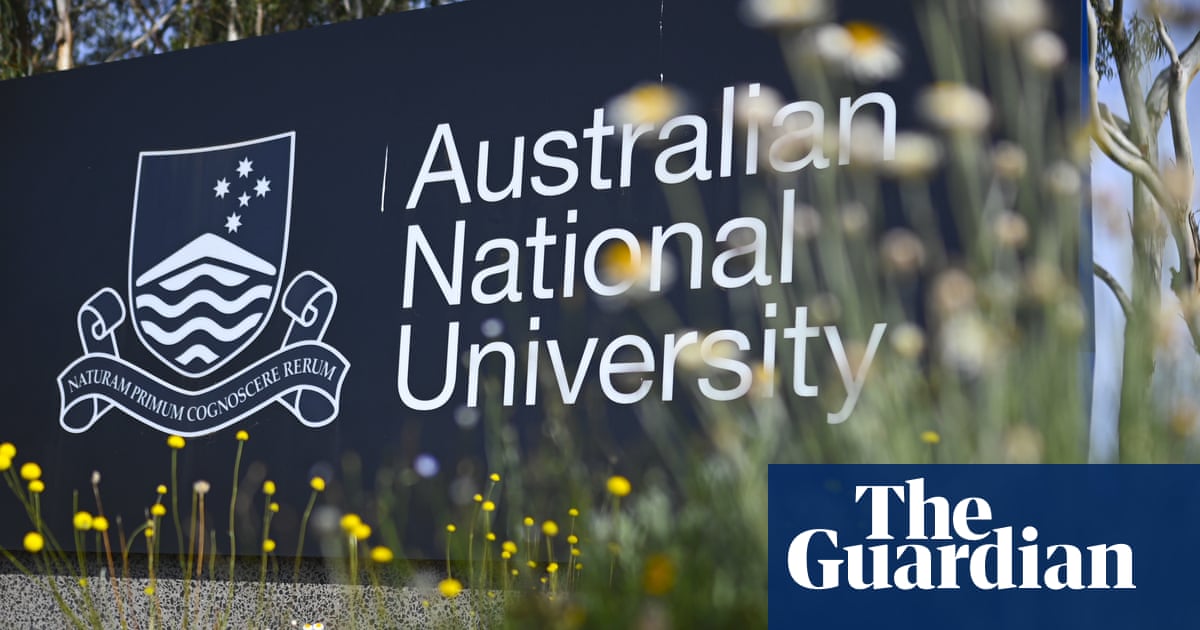Months after the release of a new definition of antisemitism, a string ofAustralian universitiesare yet to adopt it amid concerns it may contravene academic freedom.
The academic board at the Australian National University (ANU) has declined to adopt the definition, paving the way for the university to become the first to reject the policy, while at least 11 other institutions have not yet made a decision.
Peak Jewish groups last week accused the ANU of allowing an “unsafe and unwelcoming campus” over the board’s decision not to adopt the definition endorsed by Universities Australia (UA)in Februarythat closely aligns with the contentiousInternational Holocaust Remembrance Alliance (IHRA) definition, after aparliamentary inquiry into antisemitism on campuses.
The UA definition has faced some criticism since its release.
The National Union of Students (NUS) and National Tertiary Education Union (NTEU) rejected the definition over free speech and academic freedom concerns. University of Sydney students overwhelmingly voted to reject university management’s adoption of the definition, over similar concerns, at a meeting convened by the Student Representative Council.
UNSW, Deakin University, Victoria University, University of Technology Sydney and RMIT University were waiting for the outcome of consultation between the Tertiary Education Quality and Standards Agency and the Higher Education Standards Panel, which were tasked by UA to ensure the definition upholds higher education standards and freedom of expression.
James Cook University will examine the definition when it reviews its discrimination policy later this year, as will the University of Adelaide at the request of its council, while Charles Darwin University is considering the “best positioning” of the definition within its policy framework to “ensure that academic freedom and expression is honoured”.
The University of the Sunshine Coast’s academic board will consider the definition in coming months, while the University of Newcastle is “actively engaging” with stakeholders to consider “different perspectives” on the matter.
The University of Queensland senate endorsed the definition, which was later discussed by the academic board in March, and is working to “finalise” its decision.
Sign up for Guardian Australia’s breaking news email
On Friday 23 May, the last day of term, ANU’s academic board chair, Prof Tony Connolly, informed the ACT Australasian Union of Jewish Students (AUJS) the board would recommend against adopting the definition and instead intended to adopt a broader anti-racism definition based on a 2023report released by the university’s anti-racism taskforce.
An ANU spokesperson confirmed the board had recommended a definition of racism be adopted and “anti-racism culture” be developed in accordance with the taskforce’s recommendations.
The academic board holds significant authority in developing and approving university policies but it is ultimately up to the executive to decide whether to endorse its decision.
The spokesperson said the university had not rejected the UA definition and was “continuing to work with our community to determine the best approach and consider the matter through the appropriate governance processes”.
Last Friday, the heads of the Executive Council of Australian Jewry (ECAJ) and the Australian Academic Alliance AgainstAntisemitism(5A) wrote to the ANU vice-chancellor, Prof Genevieve Bell, expressing their “dismay” at the board’s decision.
“By reason of many examples of antisemitic behaviour at ANU, your campus has become unsafe and unwelcoming for Jewish students,” the letter read. “Absent a credible definition of antisemitism at ANU, we do not see how the university intends to identify antisemitic conduct and respond appropriately to it.”
The working UA definition, first developed by Group of Eight institutions, wasunanimously endorsed by 39 vice-chancellorsin February, based on work with Jillian Segal, the special envoy to combat antisemitism.
The definition says criticism ofIsraelcan be antisemitic “when it is grounded in harmful tropes, stereotypes or assumptions and when it calls for the elimination of the state of Israel or all Jews or when it holds Jewish individuals or communities responsible for Israel’s actions”.
“Substituting the word ‘Zionist’ for ‘Jew’ does not eliminate the possibility of speech being antisemitic,” the definition states.
Sign up toBreaking News Australia
Get the most important news as it breaks
after newsletter promotion
Liat Granot, a co-president of the AUJS, addressed ANU’s academic board last month, encouraging it to adopt the definition.
Granot said rejecting the definition made Jewish students feel “incredibly exposed, unsupported and disillusioned”.
“This definition was seen as the last straw … to a hope we had in the institution’s ability to protect us. That’s been crushed,” she said.
In March, the NTEU’s ACT division secretary, Dr Lachlan Clohesy, wrote to Connolly urging him to oppose the UA definition.
Clohesy said the definition was “inconsistent with fundamental principles of academic freedom and freedom of speech”, and risked conflating legitimate criticism of the Israeli state and government with antisemitism.
Clohesy said some Jewish NTEU members had taken particular issue with the “inclusion of Zionism as part of Jewish identity” in the definition, and the “underlying assumption that a Jewish person is likely to be Zionist”.
“NTEU is also concerned that the adoption of this definition could lead to attempts to initiate disciplinary [action] against ANU staff in future,” he wrote.
The ECAJ and 5A urged the board to reconsider its position and to “recognise that a non-legally binding, working definition of antisemitism that reflects the Jewish lived experience, is essential”.
“The ANU academic board … comprised of academics with no specialised anti-racism mandate, and which has a focus on academic freedom, is not the appropriate body to evaluate whether the UA definition should be adopted.”
A UA spokesperson said the body respected the autonomy of universities to make their own decisions, “including how best to implement policies and principles that support student safety and free expression”.
More than 20 universities did not provide a comment.
